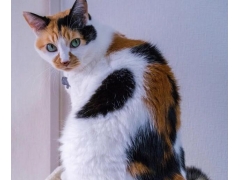11月6日补充
不知道为啥知乎隔了快一年推这个问题做啥。方便诸位,我来浓缩下目前的结果,有疑问欢迎提出,欢迎索取引用元、出处。同时我也很无奈,猫需要高蛋白这么基础,动物医学、营养学上无可辩驳的事情,居然还能有这么多使用主观案例的臆测,希望
@李想这样的饲料贩子不要再胡搅蛮缠,毕竟没人愿意看到知乎变贴吧。李先生基于自己在饲料行业中的道听途说,在知乎散播猫不合适高蛋白,脂肪高亦会得病的不科学言论,值得警醒。切忌因为对方“看似有关”的职业而被不科学、无根据的谣言所迷惑。
1.猫野生环境下代谢能的50%由蛋白质提供,相关研究者认为这符合猫的身体代谢机制。
2.高蛋白造成肾脏负担是早年小鼠试验错误引申的结果,高蛋白造成猫肾衰说不具备科学依据,近年的肾病研究中已经绝迹。这是一个被彻底被抛弃的概念,而不是一个待证实的假说,需要注意。
3.猫早期肾病(IRIS2至3早期)并不需要低蛋白,反而需要保证优质、足量蛋白质摄入,这一点已经得到诸多医师认可,是近年猫肾病治疗的变革点。
详细讨论可言移步旧文:https://zhuanlan.zhihu.com/p/25098915
对皇家的水军
@李想我就不多说啥了,以前已经见识过这号人空洞无物的胡搅蛮缠。高蛋白造成猫肾病的科学依据是0,你就别拿做猫狗饲料时业内那点以讹传讹当宝了。使用“我认识的猫吃了渴望之后肾病了所以高蛋白会导致肾病,而吃皇家都很好”这种主观臆断,否定学术证据,居然还有人点赞,只能说知乎现在是个“公开的网络平台”。
要补充的是,有一种论调认为猫高蛋白会导致碱性结石高发。这是彻头彻尾的错误,相关实验1996年就有进行,使用高达50%干物质蛋白比的食物,猫尿液ph是降低的,碱性结石发生可能是下降的。
====原文分割线====
偷换概念贴标题的
@zzu微微笑同学,皇家猫粮给你的五毛钱够花吗?到时候吃一勺肾脏疾病与蛋白质课了,免费哦。
说啥老年猫不该高蛋白也是错误的,实际上老猫蛋白质需求量比青壮年高五分之一以上,建议你自己学习,你应该比
@李想这个只会泼脏水的饲料贩子认字多一点,可惜肚子里是一路货。如果你看不懂我可以再给你免费上(da)课(lian)。
----------------------------说高蛋白对猫不好的理由是啥?
你看看猫捕猎对象多少蛋白质
我至今接触过高蛋白不消化说、高蛋白肥胖说、高蛋白猫肾负担大说,这些无一例外都是文盲级别的误读和臆测。
-----------------
某个皇家猫粮吹又在偷换概念
@zzu微微笑先来说说你引用的两个研究,我估计你是根本没细看的,这两个实验的设计差不多,都是分组吃一组是肾处方饲料一组是普通饲料,两篇作者结论都是“本研究中肾脏处方饲料在减缓血氮症发展与肾疾致死率方面强于普通饲料”---这就是你找得到的资料???你要喂谁吃这堆大便?皇家甚至有计划推出针对IRIS 1-2阶段的高蛋白肾病处方粮,脸疼不疼?不尊重科学发展就会屁股决定脑袋有没有很开心?
蛋白质本身不会损伤肾脏或者减缓病猫、狗肾脏机能丧失速度,在肾脏疾病治疗中,膳食蛋白质的降低只会在一个情况下起到作用,那就是高血氮症时。即分解蛋白质产生的氮废物,肾脏处理能力不良,urea/bun达到60-80mg/dl的情况下才有意义,其作用是解决代谢毒性。这一情况的产生一般是慢性肾脏机能丧失中肾损三阶也就是重度肾脏机能丧失时才会出现,所以才会说早中期治疗时不合适低蛋白。
如果一只猫/狗发展为重度肾脏机能不足,那么高蛋白的好处与血氮症造成中毒相比,后者更危急,两恶相权取其轻,这时候低蛋白是有其作用的
这就是
@zzu微微笑模糊观点的由来。一切都来自于不求甚解和营养学、基础宠物医学的知识缺失,偏偏还要装大尾巴狼。拿勺子凑着嘴又喂了你一顿资料,要不要谢谢我?
先贴一下 Patricia Schenck, DVM, PhD, Veterinary Nutritionist(兽医、博士、动物营养学家)。节约篇幅只贴少部分,她在这篇文章中讨论的是蛋白质是否伤宠物肾脏及低蛋白是否预防肾疾,其观点和我的一样,其中肾脏疾病部分:
"Dietary protein restriction is appropriate in renal failure when the disease has become severe. Restriction of protein is based on the appearance of clinical signs. It has been recommended to start protein restriction when the dog's BUN (blood urea nitrogen) is greater than 80 mg/dL [28.6 mmol/L], and the serum creatinine is greater than 2.5 mg/dL [221 µmol/L]. Both BUN and serum creatinine are good indicators of kidney function. Protein is restricted in an attempt to keep the BUN below 60 mg/dL [21.4 mmol/L]. Dietary protein may need to be gradually decreased over time as renal failure progresses."
继续援引猫病学泰斗Gary Norsworthy 2015年的观点(相信医生都看过他的书猫病学),如下:
key development in the treatment of chronic kidney insufficiency, Norsworthy said, [Gary Norsworthy, DVM, Dipl. ABVP (Feline), owner of Alamo Feline Health Center in San Antonio]
“在过去,喂食肾衰猫低蛋白饮食较为通用。在当今临床治疗中,改喂食肾疾猫高蛋白饮食。这一思潮转换的原因有许多,其中尤以预防病猫体重下降及肌肉组织丧失为重.....”
后半段不贴了,有兴趣自己去看。Norsworthy医生甚至不再使用肾衰“处方饲料”而是改用着重高蛋白低淀粉含量的糖尿病处方食品给病猫。
“In the past, the approach was a low-protein diet. Now the practice is to put such a cat on a high-protein diet.There are several reasons for this switch in thinking, particularly to keep the cat from losing too much weight and muscle. Muscle wasting is a common problem in senior cats, Norsworthy noted. Their spines and hips become very prominent because they have lost muscle mass. This occurs due to protein deprivation.”
继续贴,采自《Kirk's Current Veterinary Therapy XII》---慢性肾脏疾病的狗吃相对高蛋白的食物无不良反应甚至比低蛋白组反应更好:
"In perhaps the most noted clinical trial examining effects of high protein diet on progression of CRD, groups of dogs diagnosed with CRD were fed either high protein diets or low protein diets. No significant difference was observed in the rate of progression of CRD in the high-protein group compared to the low protein group. Therefore, excess protein in the diet did not appear to compromise renal function even in the presence of high endogenous levels of protein associated with the disease. In fact, on an individual basis some of the CRD dogs in the high protein diet group faired better. This finding was postulated to be associated with the fact that protein is required for cellular repair and function."
再来“没有证据显示蛋白质限制可以减缓肾脏疾病的发展” “未出现高氮血症的肾病狗不合适低蛋白”
"Dietary protein restriction improves the clinical signs and quality of life of uremic animals with both naturally occurring and experimentally induced renal failure. . . . However it is highly questionable whether protein restriction is appropriate in the azotaemic, but non-uraemic patient. The main risk of protein restriction is protein deficiency. The protein and amino acid requirements of dogs and cats with chronic renal failure have not been established, but may well be increased. . . . The main justification for protein restriction early in the course of renal failure would be if it was proven to slow progression of disease. The data that are available do not support this case in dogs. Dietary protein has been shown to affect renal haemodynamics in the dog, however, moderate protein restriction does not alleviate glomerular hypertension, hyperfiltration and hypertrophy. . . . Thus there is no evidence that moderate protein restriction slows the progression of renal failure in dogs, and it is not recommended in dogs which are not uraemic."
还要吗?




